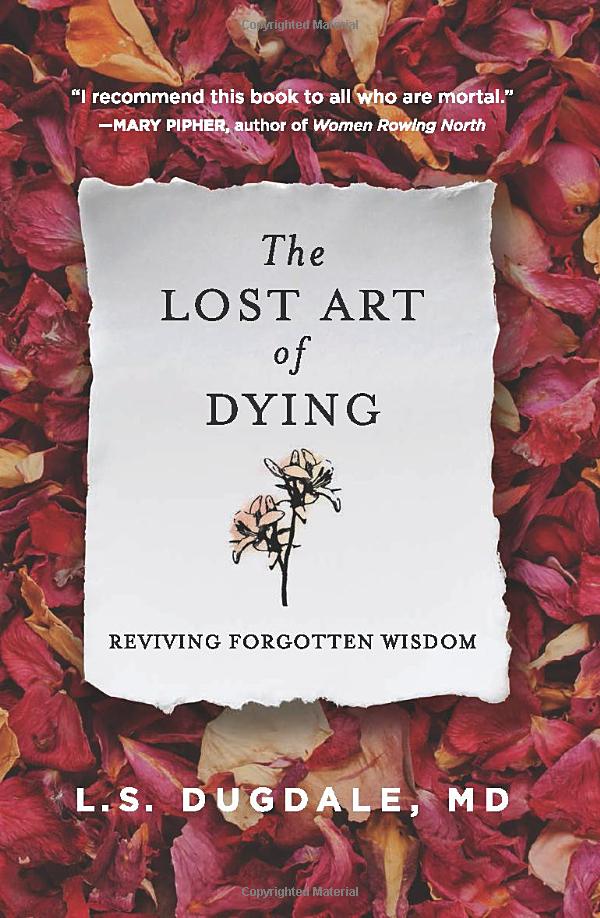A review of The Lost Art of Dying: Reviving Forgotten Wisdom by L.S. Dugdale, MD
The home-care field can feel like holding sacred space for our clients, especially when it involves hospice care. At one time it is both an endeavor to help our clients preserve that critical human need for personal autonomy in making deeply intimate life choices, while at the same time gently coming alongside them and their families as they face that shared task of us all- accepting our finitude.

The Lost Art of Dying: Reviving Forgotten Wisdom by L.S. Dugdale offers a captivating exploration of philosophical ideas surrounding mortality, and intriguingly, the concept of “aging in place” with dignity emerges repeatedly as a key reflection of Dugdale’s vision of artful dying.
Challenging societal norms regarding aging
Dugdale challenges the prevailing approach to end-of-life care that often involves moving individuals out of their homes and into institutionalized settings, which she takes great care to contrast with the historical practices of eldercare through all of time prior to the industrial revolution. She argues that this separation from familiar surroundings and the disruption of established routines and relationships can undermine the quality of life for those in their final years. Instead, she advocates for a more compassionate and patient-centered model, one that supports aging in place, with a sense of retained dignity and agency over one’s life story.
By promoting the idea of aging in place, which sees caregivers come to the individual’s home, Dugdale encourages an environment that fosters familiarity, autonomy, and a sense of belonging. This approach aligns with her broader philosophy of embracing the dying process with intention and dignity as even the ancients understood & encouraged. Aging in place allows individuals to maintain a connection to their cherished spaces, memories, and relationships, offering a greater sense of comfort and meaning in their final years.
Aging in place offers dignity
Furthermore, the concept of aging in place resonates with Dugdale’s emphasis on the importance of personal values and autonomy in end-of-life decision-making. When individuals have the option to receive care at home, they can actively participate in shaping their care plans, expressing their preferences, and maintaining a sense of control over their own lives. This aligns with Dugdale’s vision of artful dying, where individuals are empowered to make choices that align with their personal values and desires.
The Lost Art of Dying sheds light on many oft-undervalued human concerns, not least of which is the profound connection between artful dying and meaningful living. Dugdale’s insights encourage a shift in societal norms, promoting a more compassionate and holistic approach to end-of-life care that values the preservation of personal autonomy, familiarity, and dignity. By embracing the idea of aging in place, we can create environments that honor the individual’s journey, allowing them to live their final years with grace and purpose.
- A review of The Lost Art of Dying: Reviving Forgotten Wisdom by L.S. Dugdale, MD - June 30, 2023
- Use of Medicare Home Health Services vs Home Care - July 12, 2021
- Let’s Stop Elder Fraud - June 28, 2021

